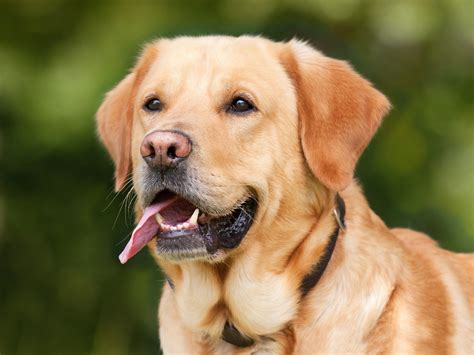Understanding Different Types of Service Dogs
Service dogs play a crucial role in assisting individuals with disabilities. These specially trained dogs provide various services to improve the quality of life for their handlers. However, not all service dogs are the same. There are different types of service dogs that are trained to perform specific tasks based on the needs of their handlers. Understanding the different types of service dogs is essential in order to choose the right one for a person with a disability.
The first type of service dog is a guide dog, also known as a mobility dog. These dogs are trained to assist individuals who are blind or visually impaired. Their primary role is to help their handlers navigate through their environment safely. Guide dogs are trained to stop at curbs, avoid obstacles, and find specific locations such as doorways or chairs. They provide a sense of independence and freedom for people with visual impairments.
The second type of service dog is a hearing dog. These dogs are trained to assist individuals who are deaf or hard of hearing. They are trained to alert their handlers to important sounds such as doorbells, alarms, or someone calling their name. Hearing dogs are instrumental in enhancing the safety and communication abilities of individuals with hearing impairments.
- Next on the list are psychiatric service dogs. These dogs are trained to assist individuals with mental health conditions such as anxiety, depression, or post-traumatic stress disorder (PTSD). They provide emotional support to their handlers and help them manage symptoms in various situations. Psychiatric service dogs can perform tasks such as grounding techniques, interrupting destructive behaviors, or creating personal space in crowded areas.
- Another type of service dog is a diabetic alert dog. These dogs are trained to detect changes in blood sugar levels and alert their handlers to high or low glucose levels. Diabetic alert dogs provide a sense of security and assistance for individuals with diabetes, helping them manage their condition and prevent life-threatening situations.
Lastly, there are mobility assistance dogs. These dogs are trained to assist individuals with physical disabilities or mobility limitations. They can retrieve dropped items, open doors, turn on lights, or provide stability and balance support to their handlers. Mobility assistance dogs enhance independence and accessibility for individuals with mobility challenges.
| Type of Service Dog | Main Role |
|---|---|
| Guide Dog | Assisting individuals who are blind or visually impaired |
| Hearing Dog | Assisting individuals who are deaf or hard of hearing |
| Psychiatric Service Dog | Assisting individuals with mental health conditions |
| Diabetic Alert Dog | Detecting changes in blood sugar levels |
| Mobility Assistance Dog | Assisting individuals with physical disabilities |
Understanding the different types of service dogs is essential when considering the specific needs of individuals with disabilities. Each type of service dog plays a unique and important role in assisting their handlers. Choosing the right service dog breed and training them accordingly can greatly impact the independence, safety, and overall well-being of individuals with disabilities.
Factors to Consider When Choosing a Service Dog Breed
When it comes to choosing a service dog breed, there are several factors that need to be considered. Size is one important factor to think about. Service dogs come in all sizes, from small to extra large. The size of the breed should be suitable for the tasks the dog will be trained to perform. For example, smaller breeds may be better suited for tasks that require agility and maneuverability, while larger breeds may be better for tasks that require strength and endurance.
Temperament is another crucial factor to consider. Service dogs need to have the right temperament to handle the demands of their work. They should be calm, patient, and obedient. Breeds that are known for being good-natured and friendly, such as Golden Retrievers and Labrador Retrievers, are often chosen as service dogs for this reason. It is important to select a breed that is naturally suited to the work and has the right personality traits.
Health is also an important consideration when choosing a service dog breed. Service dogs need to be in good health in order to perform their duties effectively. It is essential to select a breed that is generally healthy and free from genetic disorders or other health issues. Breeds such as Poodles and Labrador Retrievers are known for their good health and longevity, making them popular choices for service work. Regular veterinary check-ups, proper nutrition, and exercise are essential to maintain the health of a service dog.
Choosing the right service dog breed is a decision that should not be taken lightly. Considering factors such as size, temperament, and health can help ensure that the dog is well-suited to the tasks it will be trained to perform. By selecting the right breed, individuals can increase the chances of having a successful and fulfilling partnership with their service dog.
Labrador Retrievers: The Ultimate Service Dog
Labrador Retrievers are widely recognized as one of the best breeds for service work. Their friendly demeanor, intelligence, and trainability make them the ultimate service dogs for a variety of tasks and individuals with different needs.
One reason why Labrador Retrievers excel as service dogs is their natural inclination to please their owners. These dogs are known for their loyalty and willingness to work, which makes them highly obedient and responsive to commands. This trait is essential for tasks such as guiding the blind, retrieving items, or providing emotional support to individuals with psychiatric conditions.
Labradors are also known for their intelligence, which allows them to quickly learn and perform complex tasks. This breed is capable of understanding and carrying out multiple commands and can be trained for various specialized services, including search and rescue, therapy work, and even detection of medical conditions. Their versatility and adaptability make them suitable for a wide range of service roles.
In addition to their exceptional qualities, Labrador Retrievers are also well-suited for service work due to their physical attributes. They have a strong build, which enables them to assist individuals with mobility impairments by providing stability and support. Labradors also have a gentle mouth, allowing them to retrieve objects without causing any harm or damage.
- Labradors have a calm and patient temperament, making them ideal for working with children or individuals with special needs.
- They have a high level of stamina and energy, enabling them to fulfill demanding service tasks without becoming fatigued easily.
- Labradors are generally excellent swimmers, which is advantageous for tasks involving water rescue or retrieval.
In conclusion, Labrador Retrievers truly are the ultimate service dogs. Their friendly nature, intelligence, and physical abilities make them a perfect fit for a wide range of service work. Whether it’s guiding the blind, providing emotional support, or assisting with search and rescue operations, Labradors are reliable and devoted partners. Choosing a Labrador Retriever as a service dog is a decision that can profoundly enhance the lives of both the individual in need and the dog itself.
Golden Retrievers: Gentle Giants for Service Work
Golden Retrievers are often referred to as “gentle giants” because of their friendly and outgoing nature, as well as their larger size. These lovable dogs are not only great companions but also excel in various service roles due to their intelligence, trainability, and gentle temperament.
One of the main reasons why Golden Retrievers are well-suited for service work is their remarkable intelligence. These dogs are highly trainable and have a strong desire to please their owners, making them quick learners when it comes to performing specific tasks or following commands. Their ability to grasp complex tasks and their eagerness to work make them highly reliable service animals.
In addition to their intelligence, Golden Retrievers possess a calm and gentle temperament, making them ideal for emotional support and therapy roles. These dogs have a natural affinity for providing comfort and love, which can be incredibly beneficial for individuals struggling with emotional or psychological challenges. Their soothing presence and friendly demeanor can help alleviate stress and provide a sense of companionship.
German Shepherds: Versatile Partners in Service
German Shepherds are known for their intelligence, loyalty, and versatility, which make them excellent candidates for various service roles. These dogs have been used as service animals for many years due to their exceptional abilities and characteristics. Whether it’s guiding individuals with visual impairments, assisting with mobility tasks, or providing emotional support, German Shepherds have proven to be invaluable companions.
One of the key reasons why German Shepherds are sought after as service dogs is their high level of trainability. These dogs are quick learners and are highly receptive to commands. Their intelligence enables them to easily grasp new tasks and adapt to various environments. With consistent training and positive reinforcement, German Shepherds can be taught a wide range of skills to assist individuals with different disabilities.
Aside from their trainability, German Shepherds are also physically capable of performing demanding tasks. They are strong and agile, making them well-suited for tasks that require physical assistance, such as retrieving objects or opening doors. Their endurance and energy levels allow them to keep up with the often demanding schedules and activities of their handlers.
In addition to their physical attributes, German Shepherds possess a strong instinct to protect and serve. These dogs are naturally inclined to be vigilant and attentive, making them excellent watchdogs and guardians. This protective nature combined with their loyalty and affection towards their owners makes them reliable and trustworthy service companions.
In conclusion, German Shepherds have rightfully earned their reputation as versatile partners in service. Their intelligence, trainability, physical capabilities, and protective instincts make them highly suitable for a range of service roles. Whether it’s guiding the visually impaired, assisting with mobility tasks, or providing emotional support, German Shepherds truly excel as service dogs. Their unwavering loyalty and dedication to their handlers make them not only exceptional work partners but also cherished members of their families.
Poodles: Intelligent and Hypoallergenic Service Dogs
When it comes to service dogs, Poodles are often praised for their intelligence and hypoallergenic qualities. These furry companions are not only highly trainable, but they also excel in various service tasks thanks to their incredible intelligence. Additionally, their hypoallergenic coats make them ideal for individuals with allergies. In this blog post, we will explore the unique characteristics of Poodles that make them excellent service dogs.
One of the key reasons why Poodles make outstanding service dogs is their remarkable intelligence. Poodles are known for their ability to quickly learn and understand commands, making them highly trainable. Their intelligence allows them to perform complex tasks and adapt to various situations effortlessly. Whether it’s guiding someone with visual impairments, retrieving items, or providing emotional support, Poodles are quick learners and can easily pick up on new skills and tasks.
Poodles also possess hypoallergenic coats, which is another significant advantage for individuals with allergies. Unlike other breeds that shed profusely and cause allergic reactions, Poodles have hair similar to human hair, which minimizes dander and allergens. This characteristic makes Poodles suitable for people with allergies, as their minimal shedding reduces the risk of triggering allergic reactions. This hypoallergenic quality allows individuals with allergies to enjoy the companionship and benefits of a service dog without compromising their health.
- Poodles are highly intelligent and quick learners.
- Their intelligence enables them to perform complex service tasks.
- They possess hypoallergenic coats, making them suitable for individuals with allergies.
In addition to their intelligence and hypoallergenic qualities, Poodles also have an exceptional temperament that makes them well-suited for service work. They are typically friendly, calm, and eager to please their handlers, which is essential in service dog tasks. Poodles are highly focused and have a strong desire to work, making them reliable companions and service animals.
| Characteristics | Details |
|---|---|
| Intelligence | Quick learners, easily adapt to new tasks and situations |
| Hypoallergenic | Minimal shedding, suitable for individuals with allergies |
| Temperament | Friendly, calm, and eager to please |
In conclusion, Poodles possess the intelligence and hypoallergenic qualities necessary to excel as service dogs. Their ability to quickly learn, adapt, and perform complex tasks sets them apart. Moreover, their hypoallergenic coats make them a great choice for individuals with allergies. Adding to their exceptional qualities, Poodles also have a friendly and eager-to-please temperament, making them suitable and reliable service companions. If you are considering a service dog, don’t overlook the remarkable capabilities of Poodles.
Collies: Energetic and Highly Trainable Service Companions
Collies are a popular breed known for their intelligence, loyalty, and versatility. They have been widely recognized as excellent service dogs due to their energetic nature and highly trainable temperament. Whether it’s guiding individuals with visual impairments, assisting those with mobility issues, or providing emotional support, Collies are exceptional in fulfilling various service roles.
One of the key reasons why Collies make great service companions is their high energy level. These dogs thrive on physical activity and mental stimulation, making them well-suited for the demands of service work. They can handle long walks, vigorous play sessions, and are always ready for a challenge. The energy and stamina of Collies allow them to keep up with the active lifestyles of their handlers, ensuring they are always ready to assist.
Another remarkable characteristic of Collies is their trainability. They are highly intelligent and eager to please, making them quick learners. Whether it’s obedience training, complex task training, or specialized skills training, Collies excel in grasping new commands and concepts. Their willingness to learn and respond to training cues efficiently contributes to their success as service dogs.
Collies also possess a natural instinct to be attentive and empathetic towards their handlers. This sensitivity allows them to pick up on their handler’s emotional cues and provide comfort and support when needed. Their gentle and nurturing disposition makes them ideal emotional support animals, providing a sense of calm and stability to individuals facing mental health challenges.
- Energetic: Collies are known for their high energy level, which enables them to handle the physical demands of service work.
- Trainable: Collies are highly intelligent and eager to please, making them quick learners and adaptable to various training methods.
- Attentive: Collies possess a natural instinct to be attentive and empathetic towards their handlers, providing emotional support when needed.
| Pros | Cons |
|---|---|
| Highly trainable | Require regular exercise and mental stimulation |
| Energetic and active | May have herding instincts that need to be managed |
| Attentive and empathetic | Regular grooming and maintenance required |
In conclusion, Collies are energetic, highly trainable, and empathetic service dogs that excel in various roles. Their energy level, combined with their trainability, makes them well-suited for the physical demands of service work. Additionally, their attentive and empathetic nature allows them to provide emotional support to individuals in need. If you’re looking for a service companion that can keep up with an active lifestyle and offer unwavering loyalty, a Collie may be the perfect choice.
Frequently Asked Questions
1. What are the factors to consider when choosing a service dog breed?
When choosing a service dog breed, there are several factors you should consider. These include the dog’s temperament, size, energy level, and specific skills and traits needed for the task at hand.
2. Why are Labrador Retrievers considered the ultimate service dogs?
Labrador Retrievers are considered the ultimate service dogs for several reasons. They are highly intelligent, trainable, and have a calm and friendly temperament. Additionally, they have a strong desire to please their owners, making them excellent working companions.
3. What makes Golden Retrievers suitable for service work?
Golden Retrievers are known for their gentle and patient nature, which makes them ideal for service work. They are also highly trainable and have a natural instinct for assisting and providing comfort to individuals with disabilities.
4. Why are German Shepherds versatile partners in service?
German Shepherds are versatile partners in service due to their intelligence, loyalty, and high level of trainability. They excel in a wide range of tasks, including guiding the visually impaired, assisting individuals with mobility issues, and working in search and rescue operations.
5. What makes Poodles intelligent and hypoallergenic service dogs?
Poodles are highly intelligent and easily trainable, which makes them well-suited for service work. Additionally, their curly, hypoallergenic coats make them a great choice for individuals with allergies or asthma, as they shed less and produce less dander.
6. Why are Collies considered energetic and highly trainable service companions?
Collies are known for their boundless energy and enthusiasm, which can be channeled into working activities. They are highly trainable and excel in tasks that require a strong work ethic and focus. Their intelligence and loyalty also make them excellent service companions.
7. What should I consider when choosing a service dog breed to suit my needs?
When choosing a service dog breed, it is important to consider your specific needs and requirements. Factors such as the tasks you need assistance with, your lifestyle and living environment, and any allergies or sensitivities should be taken into account to ensure a successful partnership.





